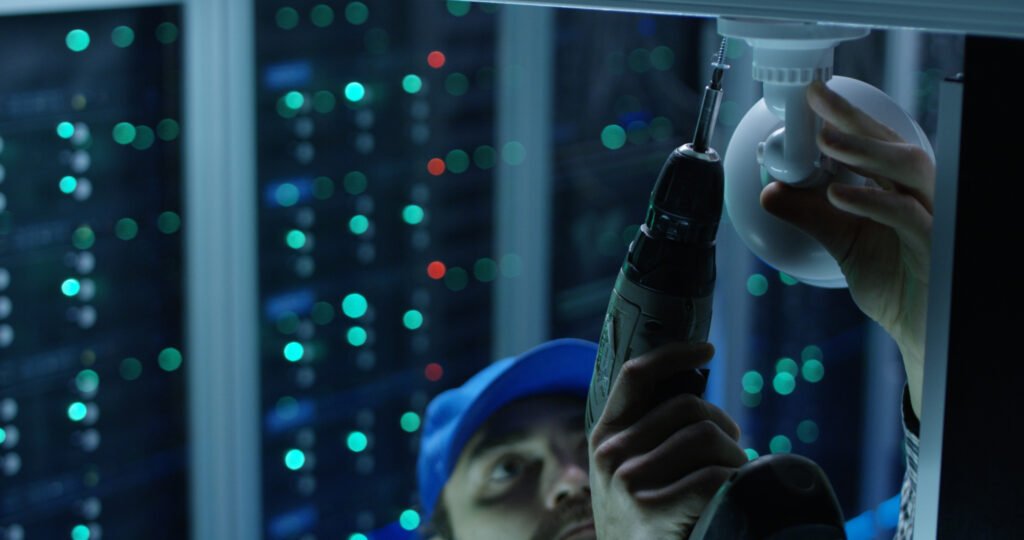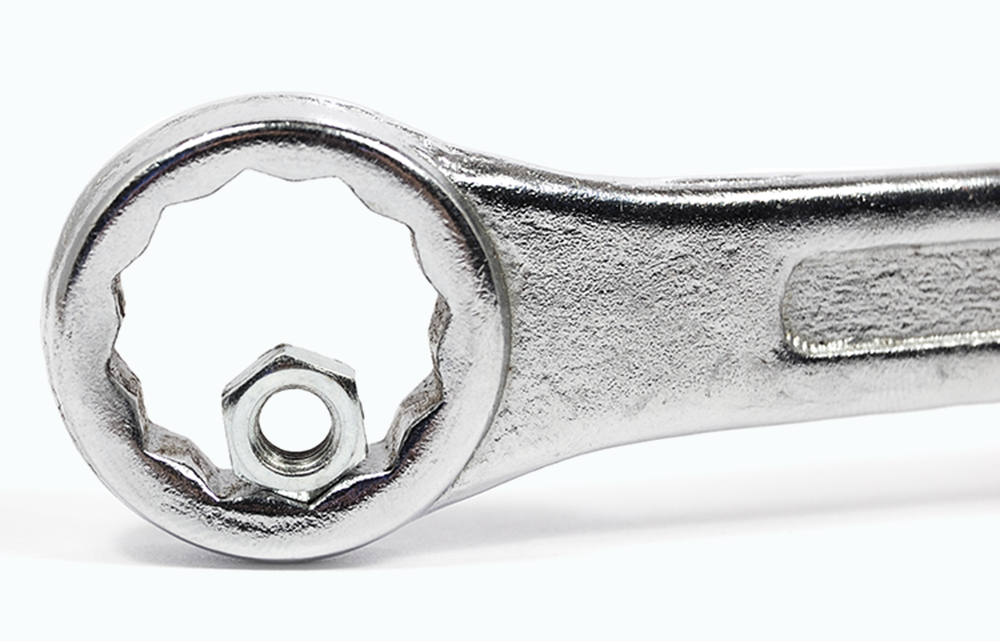Security Installation Jobs

Introduction
Security installation engineer jobs involve the setup, maintenance, and repair of various security systems designed to protect properties from intrusions, theft, and other security threats. These roles are crucial in both residential and commercial settings, ensuring that properties are safeguarded against potential risks. Security installation engineers are responsible for the installation of systems such as CCTV cameras, intruder alarms, and access control systems. They must possess a keen eye for detail, technical prowess, and a deep understanding of security equipment.
Opportunities in Security Installation
The security industry in the UK is burgeoning, offering numerous opportunities for skilled professionals. Security installation engineers can expect a clear career progression path, with opportunities to specialise in different types of security systems or move into managerial roles. The industry offers competitive salaries and comprehensive benefits packages, including employee assistance programmes. As security becomes an ever-more critical concern, the demand for qualified professionals in this field is set to grow.
Qualifications and Skills Needed for Security Installation Jobs
To excel in security installation jobs, individuals need a blend of technical skills and industry-specific knowledge. Key skills include proficiency in electrical systems, strong problem-solving abilities, and the capacity to work with various security technologies. Additionally, excellent customer service skills are crucial, as installers often interact and communicate directly with clients to ensure their security needs are met.
Certifications such as the National Security Inspectorate (NSI) or Security Systems and Alarms Inspection Board (SSAIB) accreditation can significantly enhance a candidate’s employability. These certifications demonstrate a commitment to high standards and adherence to industry regulations. Ongoing professional development is also vital, keeping security installers abreast of the latest advancements in technology and best practices.
The Job Market Landscape for Security Installers in the UK
The UK job market for security installers is dynamic and expanding. With increasing concerns over property and personal security, the demand for skilled security professionals is on the rise. London, in particular, offers numerous opportunities due to its dense population and the high concentration of businesses requiring advanced security measures.
Regional differences play a role in job availability, with urban areas typically offering more positions compared to rural locations. Major employers in the security installation sector include specialised security companies, facilities management firms, and large corporations with in-house and contract security teams.
Becoming a Security Systems Installer
A security systems installer is tasked with designing, installing, and maintaining various security systems. The job description typically includes assessing client needs, planning the installation process, and ensuring that all systems comply with relevant safety and security standards. Installers must be adept at troubleshooting and repairing equipment to maintain optimal system functionality.
Experience in electrical or electronic engineering is often a prerequisite, along with a solid understanding of different security technologies. Practical experience gained through apprenticeships or on-the-job training can be invaluable, providing candidates with hands-on knowledge and expertise.
Understanding Security Systems
Security systems encompass a wide range of technologies designed to protect people, property, and assets. These systems include CCTV cameras, intruder alarms, and access control systems. Each type of system plays a specific role in maintaining security and requires specialised knowledge to install and maintain effectively.
CCTV systems, for example, are used for surveillance and monitoring, providing real-time footage that can deter criminal activity and assist in investigations. Intruder alarms alert property owners and security personnel to unauthorised entries, while access control systems regulate who can enter specific areas, enhancing overall security.
Access Control Systems
Access control systems are a critical component of modern security solutions. These systems manage and monitor access to buildings and specific areas within them. Technologies used in access control systems include key cards, biometric scanners, and keypad entry systems.
Installing and maintaining access control systems requires precision and a thorough understanding of the technology involved. Security installation engineers must ensure that these systems are seamlessly integrated with other security measures and that they operate reliably to prevent unauthorised access.
Integration with Fire Alarm Systems
Fire alarm systems are integral to overall security strategies, particularly in commercial and public buildings. Integrating fire alarm systems with other security systems can enhance safety and streamline emergency responses. For example, a fire alarm system can be linked with access control systems to unlock doors automatically, facilitating quick evacuations.
Security installation engineers must be proficient in installing and maintaining both security and fire alarm systems, ensuring they work together harmoniously. This integration of fire security also enhances the overall safety of the premises, protecting both people and property.
Benefits of Working in the Fire and Security Industry
Working in the fire and security industry offers numerous benefits, including access to comprehensive employee assistance programmes and opportunities for continuous professional development. The sector is known for its competitive salary packages, which often include additional benefits such as health insurance, retirement plans, back pay and paid time off.
The industry also offers a sense of job security, given the constant demand for skilled professionals to maintain and enhance security measures. For those passionate about technology and safety, a career in this field can be both rewarding and fulfilling.
The Future of Security Installation Jobs
The future of security installation jobs looks promising, driven by ongoing technological advancements and an increasing focus on security. Innovations such as smart technology, artificial intelligence, and advanced surveillance systems are reshaping the landscape, creating new opportunities and challenges for security professionals.
As technology evolves, security installation engineers will need to stay updated with the latest trends and tools. This continuous learning will not only enhance their skills but also ensure they remain competitive in the job market.
Essential Tools and Equipment for Security Installers
Security installers rely on a range of tools and equipment to perform their duties effectively. These include basic tools such as screwdrivers and drills, as well as specialised equipment like multimeters, cable testers, and signal generators. Having the right tools is crucial for ensuring accurate installations and maintenance.
Installers must also be familiar with software used for configuring and monitoring security systems. This includes understanding how to use different interfaces and platforms to ensure systems are functioning correctly and providing the desired level of security.
Best Practices in Security Installation
Adhering to best practices is essential for security installers to deliver high-quality service. This includes following manufacturer guidelines, complying with industry standards, and maintaining meticulous records of installations and maintenance activities. Regularly updating skills and knowledge through training and certifications also contributes to best practices.
Effective communication with clients is another critical aspect. Understanding their specific security needs and providing clear explanations of the systems and their functionality ensures client satisfaction and builds trust.
Customer Service and Client Relations
Customer service is a key component of a security installer’s role. Installers must build strong relationships with clients, understanding their security concerns and providing tailored advice and solutions. This involves regular communication, from the initial consultation through to the installation and ongoing maintenance of the security systems.
Providing excellent customer service can lead to repeat business and referrals, which are crucial for growing a successful security installation business. Ensuring clients are satisfied with the services provided helps in building a positive reputation in the industry.
Compliance and Safety Standards
Compliance with safety and industry standards is non-negotiable in the security installation field. Security installers must ensure that all systems are installed according to the relevant regulations, such as those set by the National Security Inspectorate (NSI) and the Security Systems and Alarms Inspection Board (SSAIB).
Adhering to these standards not only ensures the safety and reliability of the security systems but also enhances the credibility of the security installation engineer and installer. Regular inspections and audits may be required to maintain compliance and certifications.
Planning and Project Management in Security Installation
Effective planning and project management are essential for successful security installations. This involves assessing the site, understanding the client’s needs, and developing a detailed plan for the installation process. Project management skills are crucial for coordinating with other trades, managing timelines, and ensuring that the project stays within budget.
Installers must also be prepared to handle unexpected challenges, such as technical issues or changes in client requirements. Flexibility and problem-solving skills are key to managing these situations effectively.
Working with Electrical Systems in Security Installation
A strong understanding of electrical systems is vital for security installers. This includes knowledge of wiring, circuit testing, and electrical safety standards. Many security systems, such as CCTV cameras and alarm systems, rely on electrical power, making this knowledge essential.
Installers must be able to work safely and efficiently with electrical components, ensuring that all installations are completed without compromising safety. This also involves regular testing and maintenance to ensure the ongoing functionality of the systems.
Maintenance and Repair of Security Systems
Regular maintenance and timely repairs are crucial for the longevity and effectiveness of security systems. Security installers must provide ongoing support to their clients, ensuring that all systems are functioning correctly and addressing any issues that arise promptly.
This involves the completion of scheduled inspections, testing of system components, and performing necessary repairs or upgrades. Providing reliable maintenance services can enhance client satisfaction and ensure the continued protection of their properties.
The Role of Security Installers in Commercial and Residential Settings
Security installers play a critical role in both commercial and residential settings. In commercial environments, they ensure the protection of assets, employees, and customers through advanced security measures. In residential settings, they provide homeowners with peace of mind by safeguarding their homes against intrusions and other threats.
Each setting presents unique challenges and requires tailored solutions. Security installers must be adaptable, able to design and implement systems that meet the specific needs of different local environments.
Tips for Job Seekers in the Security Installation Field
For those looking to enter the security installation field, gaining relevant qualifications and practical experience is essential. Pursuing certifications from recognised bodies such as NSI or SSAIB can significantly enhance your ability and employability.
Networking with industry professionals and staying updated with the latest technological advancements can also provide a competitive edge. Job seekers should focus on developing a strong resume that highlights their skills, experience, and commitment to the industry.
Case Studies: Successful Security Installation Projects
Examining case studies of successful security installation projects can provide valuable insights into best practices and innovative solutions. These examples highlight the challenges faced by installers and their team and the strategies used to overcome them, offering practical lessons for aspiring professionals.
Case studies also demonstrate the impact of effective security installations, showcasing how they enhance safety and protect assets in various settings. Sharing these success stories can inspire confidence in potential clients and build a strong reputation for excellence in the industry.
Conclusion
Security installation jobs offer a rewarding career path with numerous opportunities for growth and development. With the increasing importance of fire and security jobs in today’s world, the demand for skilled security installers is set to rise. By obtaining the necessary qualifications, staying updated with industry trends, and delivering excellent customer service, professionals in this field can build a successful and fulfilling career. Whether working in commercial or residential settings, security installers play a vital role in protecting people and property, making this a crucial and impactful profession.
Every Job is Easier if You Have the Right Tools
